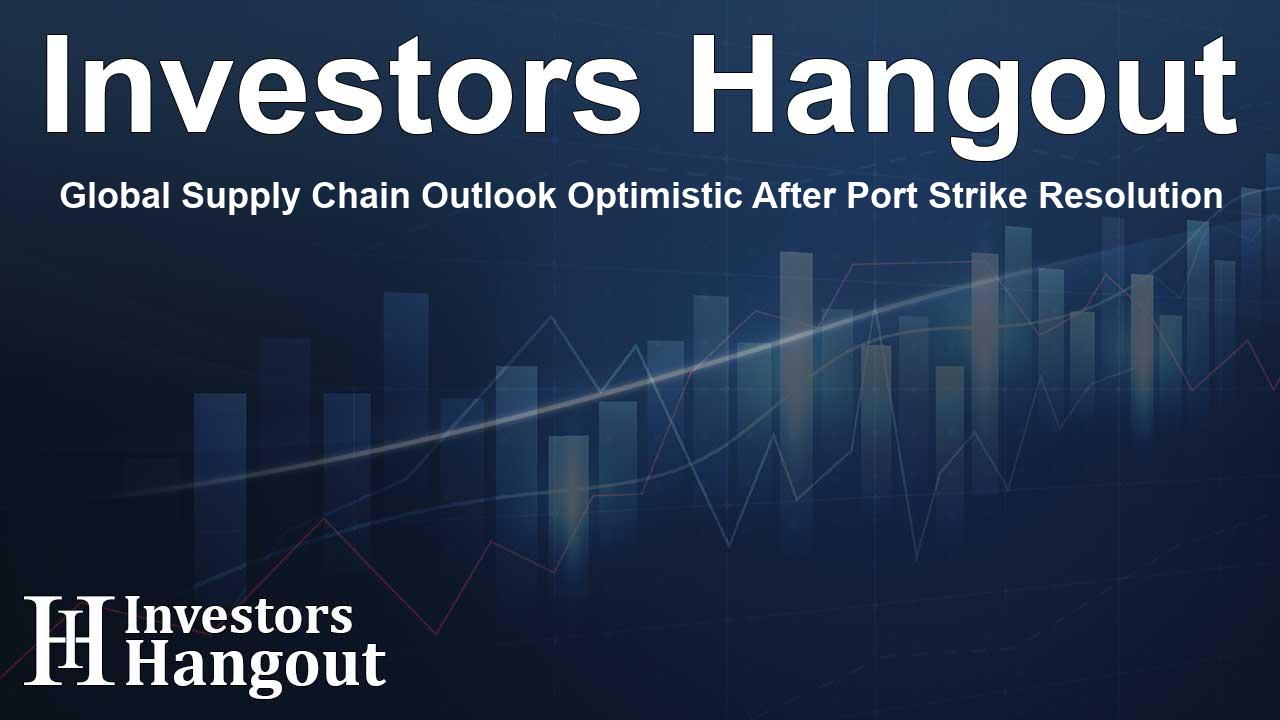Global Supply Chain Outlook Optimistic After Port Strike Resolution

Key Developments in Global Supply Chains
The recent resolution of a U.S. port worker strike has brought a significant sense of relief to global supply chains. This decision is expected to keep the supply chain pressures tracked by the New York Fed at a manageable level, which supports ongoing efforts to control inflation.
Understanding the Supply Chain Pressure Index
According to data released by the New York Federal Reserve, the global supply chain pressure index experienced a noteworthy change, easing to a reading of 0.13 in September. This marks a sharp contrast from earlier this year when the index was significantly lower at -0.96 in April and saw a marginal increase to 0.2 in August.
What It Means for Inflation
These figures indicate that global supply chain pressures have stabilized, hanging around normal levels since the beginning of 2023. This stability is crucial as it has contributed to the declining trends in inflation. The Fed's decision to initiate rate cuts last month was facilitated largely due to this easing in supply chain disruptions. It’s noteworthy to remember that during the early stages of the coronavirus pandemic, these disruptions were pivotal in driving inflation to unprecedented highs.
Impact of the Port Strike Resolution
Before the strike concluded, there were concerns that continued work stoppages at major U.S. ports could reignite inflationary pressures. The East Coast and Gulf Coast ports faced significant interruptions which could have exacerbated existing supply chain issues. Fortunately, with the recent resolution, fears of a prolonged strike are alleviated.
Expert Insights on Economic Recovery
Following the release of strong job data, Chicago Fed President Austan Goolsbee commented on the encouraging economic indicators, emphasizing that the conclusion of the port strikes is a substantial boon for the economy. His remarks underline the importance of both robust employment figures and an end to the disruptions caused by the labor strikes.
Future of Economic Conditions
The conclusion of the port worker strike is seen as a pivotal moment for economic stability. Joseph Brusuelas from RSM US LLP stated that the end of this risk allows the economy to breathe a sigh of relief, preventing any near-term spikes in supply chain disruptions and inflation.
Looking Ahead
As the dust settles from the port operations, the focus will remain on how these changes could shape future economic policies and trends. Market participants will closely monitor upcoming data releases and signals from the Fed, especially in regards to interest rate adjustments.
Frequently Asked Questions
What is the impact of the U.S. port strike on inflation?
The U.S. port strike's resolution is expected to ease inflationary pressures by stabilizing supply chains, which play a critical role in pricing stability.
How does the global supply chain pressure index work?
The index measures supply chain conditions against historical averages, indicating whether current pressures are above or below the norm.
What were the previous readings of the supply chain pressure index?
In April, the index was at -0.96, indicating higher pressure, whereas it showed improvement reaching 0.13 in September.
Can supply chain disruptions affect economic growth?
Yes, disruptions can lead to increased costs and inflation, thereby hindering overall economic growth and stability.
What future economic measures can be expected post-strike?
Experts anticipate potential adjustments in interest rates from the Fed, as inflation pressures ease and the economy stabilizes.
About Investors Hangout
Investors Hangout is a leading online stock forum for financial discussion and learning, offering a wide range of free tools and resources. It draws in traders of all levels, who exchange market knowledge, investigate trading tactics, and keep an eye on industry developments in real time. Featuring financial articles, stock message boards, quotes, charts, company profiles, and live news updates. Through cooperative learning and a wealth of informational resources, it helps users from novices creating their first portfolios to experts honing their techniques. Join Investors Hangout today: https://investorshangout.com/
Disclaimer: The content of this article is solely for general informational purposes only; it does not represent legal, financial, or investment advice. Investors Hangout does not offer financial advice; the author is not a licensed financial advisor. Consult a qualified advisor before making any financial or investment decisions based on this article. The author's interpretation of publicly available data shapes the opinions presented here; as a result, they should not be taken as advice to purchase, sell, or hold any securities mentioned or any other investments. The author does not guarantee the accuracy, completeness, or timeliness of any material, providing it "as is." Information and market conditions may change; past performance is not indicative of future outcomes. If any of the material offered here is inaccurate, please contact us for corrections.